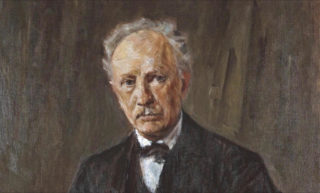Three prodigies and a genius
Sinfonieorchester Basel
4 December 2019
Franz Peter Zimmermann, Violin
Soloists and vocal ensemble
Ivor Bolton, Conductor
Ludwig van Beethoven - Concerto for Violin and Orchestra
Felix Mendelssohn Bartholdi - A Midsummer Night's Dream, overture and incidental music
This month’s program is a continuation of Ludwig van Beethoven’s 250th anniversary, this time featuring his violin concerto. It took the efforts of three prodigies to establish its fame.
The concerto was composed for the Austrian violin virtuoso Franz Joseph Clement. Tall stories had it that he could memorize the score of the concerto after having had just a brief glance at it. That seems to be an exaggeration. Although Beethoven (1770-1827) composed the concerto in barely five weeks, he worked in close cooperation with the violinist who must have had quite detailed insights into the structure of the piece right from the start.
Clement, Beethoven’s junior by a decade, was a child prodigy who already had a high-flying career when he commissioned the concerto in 1806 at the age of 26. As the concertmaster of the orchestra of the Theater an der Wien, he had played a pivotal role in the premiering of several of Beethoven’s works.
Clement was a typical conservative Viennese musician who wasn’t keeping up with the latest developments of his musical instrument, in his case, the violin. Around 1800 the violin and the bow were going through a number of changes, for example a higher comb and a slightly concave instead of a convex bow, that allowed for a more even sound and a more splendid playing style. But Clement stuck to his old violin and Beethoven wasn’t able to capitalize on the new possibilities of the modern instrument. Instead the composer designed the concerto in such a way that the orchestra is less of an accompanying body for the soloist and rather an equal partner in the musical discourse.
The reception of the piece, after its premiere in December 1806, was lukewarm and Beethoven, not fully content either, kept on working on the score until the following summer. Despite the improvements, the concerto led an obscure life until 1844 when two other child prodigies –Felix Mendelssohn-Bartholdy and Joseph Joachim, a violinist– championed the work. Joachim, not yet 13 years old, and Mendelssohn, conducting, had scheduled Beethoven’s masterpiece for a concert in London. The success of the performance was the beginning of the rise of what some now consider to be the most important piece of its genre.
Although Mendelssohn (1809-1847) was also instrumental in the re-discovery of Bach’s Saint Matthew Passion, he was a composer first and foremost. A Midsummer Night’s Dream, incidental music for Shakespeare’s play, is one of his best-known works. When Friedrich Wilhelm IV of Prussia asked him in the 1840s to write music for theatre productions, Mendelssohn efficiently dusted off his overture from 1826 to the same play and expanded it with twelve movements and a finale. Shakespeare’s play is a complicated, comic love story full of magical elements like fairies – vividly portrayed in the violins at the beginning of the overture -, love potions, an Indian prince and a fairy queen falling in love with an ass-headed craftsman whose braying is hard to miss in Mendelssohn’s brilliant music.
Beethoven may be the only protagonist in tonight’s program not to have been a child prodigy, he certainly was a genius.
These English program notes have been published in the magazine (No. 4, 2019/2020) of the Sinfonieorchester Basel.





Comments